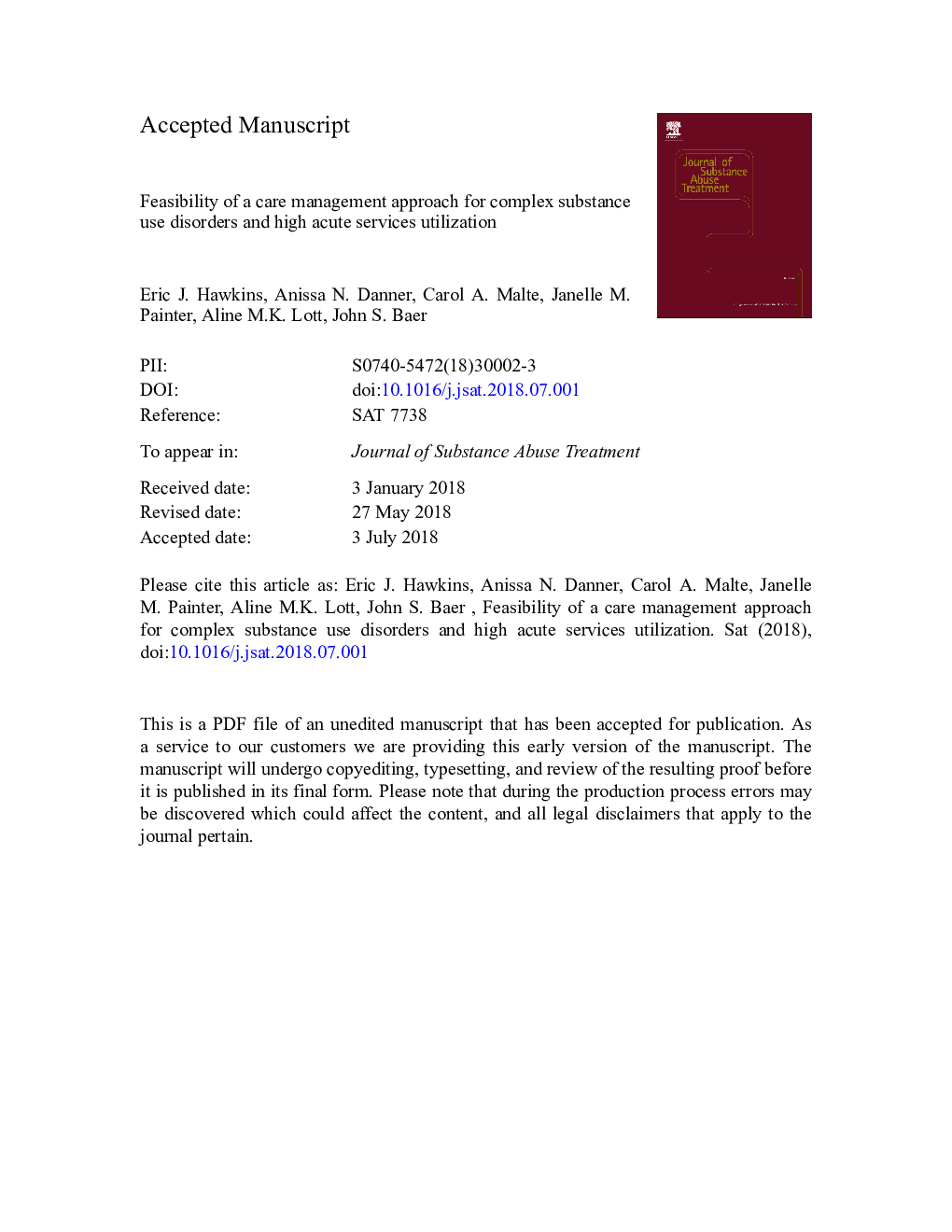| Article ID | Journal | Published Year | Pages | File Type |
|---|---|---|---|---|
| 6801450 | Journal of Substance Abuse Treatment | 2018 | 39 Pages |
Abstract
Although care management approaches have potential to improve clinical outcomes and reduce healthcare costs, little is known about the feasibility of these interventions in patients with complex substance use disorders (SUDs), which are characterized by psychosocial, psychological and/or medical needs and high acute healthcare utilization. We assessed the feasibility of recruitment, treatment engagement, compliance with follow-up assessments, and patients' use of a care management model (CMM) at one medical center. This pilot study enrolled patients with complex SUDs and high healthcare utilization in a prospective, 1-year open trial of a CMM adapted for specific needs of this patient population. Patients completed baseline assessment, monthly assessments of treatment progress and follow-up assessments at 6- and 12-months. Patients' use of CMM services were abstracted from medical records. Of 33 eligible patients approached, 23 (69.6%) men enrolled in the study. Approximately 59.1% of patients attended a CMM visit in â¥8 of 12â¯months enrolled. Patients completed monthly assessments in 4.9 (SDâ¯=â¯3.1) of 12â¯months enrolled, and 68.2% and 41.0% completed 6- and 12-month follow-up assessments, respectively. The most common CMM service delivered was care coordination/case management, followed by supportive counseling, motivational interviewing, and medication management. Recruitment and engagement results suggest that use of CMM for complex SUDs and high healthcare utilization is feasible. More robust outreach services may be needed to increase engagement among those who did not engage or lost contact with the CMM team. Additional research is needed to evaluate if CMM enhances retention, improves outcomes and reduces acute healthcare utilization of patients with complex SUDs.
Related Topics
Life Sciences
Neuroscience
Biological Psychiatry
Authors
Eric J. Hawkins, Anissa N. Danner, Carol A. Malte, Janelle M. Painter, Aline M.K. Lott, John S. Baer,
